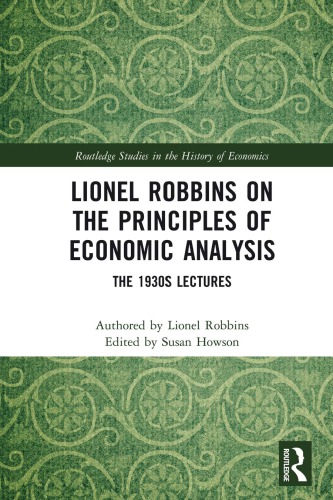

Most ebook files are in PDF format, so you can easily read them using various software such as Foxit Reader or directly on the Google Chrome browser.
Some ebook files are released by publishers in other formats such as .awz, .mobi, .epub, .fb2, etc. You may need to install specific software to read these formats on mobile/PC, such as Calibre.
Please read the tutorial at this link: https://ebookbell.com/faq
We offer FREE conversion to the popular formats you request; however, this may take some time. Therefore, right after payment, please email us, and we will try to provide the service as quickly as possible.
For some exceptional file formats or broken links (if any), please refrain from opening any disputes. Instead, email us first, and we will try to assist within a maximum of 6 hours.
EbookBell Team

4.3
48 reviewsBesides his famous graduate seminar his most important and influential courses at LSE were the Principles of Economic Analysis, which he gave in the 1930s and again in the late 1940s and 1950s, as well as the History of Economic Thought, from 1953 until long after his official retirement. This book publishes for the first time the manuscript notes Robbins used for his lectures on the Principles of Economic Analysis from 1929/30 to 1934/40. At the outset of his career he took the advice of a senior colleague to prepare his lectures by writing them out fully before he presented them; the full notes for most of his pre-war lectures survive and are eminently decipherable.
Since he made two major revisions of the lectures in the 1930s the Principles notes show both the development of his own thought and the way he incorporated the major theoretical innovations made by younger economists at LSE, such as John Hicks and Nicholas Kaldor, or elsewhere, notably Joan Robinson. He intended to turn his lecture notes into a book, abandoning the project only when he was asked to chair the Committee on Higher Education in 1960. This volume is not exactly the book he wanted to write, but it is a unique record of what was taught to senior undergraduate and graduate economists in those 'years of high theory'. It will be of interest to all economists interested in the development of economics in the twentieth century.